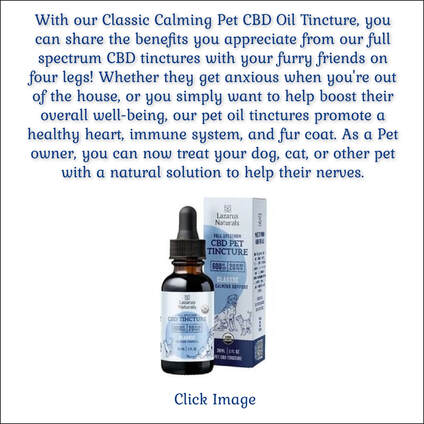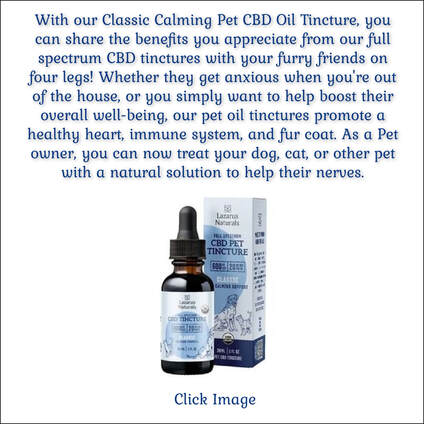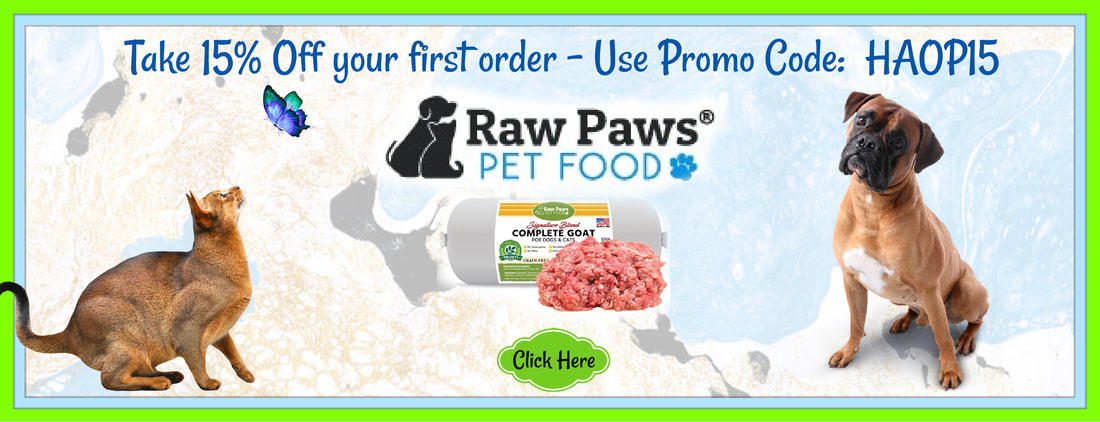Hyperthyroidism in cats is most likely caused by overfeeding of seafood.

By Washington State University
Hyperthyroidism is the overproduction of thyroid hormone by the thyroid glands. Hyperthyroidism occurs most commonly in older cats and is rare in dogs. The average age of cats with hyperthyroidism is 13 years of age; only about 5 % of hyperthyroid cats are younger than 10 years of age. There are 2 thyroid glands located in the neck. One or both of the glands can enlarge and overproduce thyroid hormone. Involvement of both glands is more common than involvement of one gland. Thyroid hormone affects the function of most organs in the body, so the signs of hyperthyroidism are quite variable.
Hyperthyroidism is the overproduction of thyroid hormone by the thyroid glands. Hyperthyroidism occurs most commonly in older cats and is rare in dogs. The average age of cats with hyperthyroidism is 13 years of age; only about 5 % of hyperthyroid cats are younger than 10 years of age. There are 2 thyroid glands located in the neck. One or both of the glands can enlarge and overproduce thyroid hormone. Involvement of both glands is more common than involvement of one gland. Thyroid hormone affects the function of most organs in the body, so the signs of hyperthyroidism are quite variable.
Signs of hyperthyroidism can include:
A diagnosis of hyperthyroidism is made when the level of thyroid hormone is increased in the blood. Most hyperthyroid cats have very high levels of hormone but some cats will have signs of hyperthyroidism with normal or only slightly increased levels of thyroid hormone.
- weight loss
- increased appetite
- increased activity and restlessness
- aggressive or "cranky" behavior
- a poor hair coat
- a fast heart rate
- increased water drinking
- increased urination
- periodic vomiting
- increased amount of stool or diarrhea
- occasionally difficulty breathing
- occasionally weakness
- occasionally depression
A diagnosis of hyperthyroidism is made when the level of thyroid hormone is increased in the blood. Most hyperthyroid cats have very high levels of hormone but some cats will have signs of hyperthyroidism with normal or only slightly increased levels of thyroid hormone.
Thyroid hormone levels can vary over time so it may be necessary to check blood levels several times or perform a different test called a T3 suppression test. The enlarged thyroid gland(s) can often be felt in the neck. If the diagnosis is not obvious by blood tests, a nuclear medicine scan of the thyroid glands can be performed at certain specialty veterinary practices. The cat is given a small dose of a radioactive compound that travels by the blood to the thyroid glands. Hyperactive thyroid glands accumulate more of the compound than normal glands. After this test the cat must be hospitalized for a few days while it clears the radioactive compound from its body.
A nuclear medicine scan of the thyroid glands.
Both thyroid glands are abnormal in this cat and take up the radioactive compound. The other black spot is the stomach lining which will also take up the compound.
A blood panel and urinalysis are also performed to screen for abnormalities in other organs such as liver and kidney that may be present due to the advanced age of the animal.
High levels of thyroid hormone may cause heart disease. The heart may appear enlarged on x-ray or ultrasound and may show abnormal electrical activity on an ECG (electrocardiogram). Heart disease may cause fluid to build up in or around the lungs. Cats with serious heart disease and hyperthyroidism need to be treated for both diseases. The heart disease will reverse in many cats after successful treatment of hyperthyroidism.
A nuclear medicine scan of the thyroid glands.
Both thyroid glands are abnormal in this cat and take up the radioactive compound. The other black spot is the stomach lining which will also take up the compound.
A blood panel and urinalysis are also performed to screen for abnormalities in other organs such as liver and kidney that may be present due to the advanced age of the animal.
High levels of thyroid hormone may cause heart disease. The heart may appear enlarged on x-ray or ultrasound and may show abnormal electrical activity on an ECG (electrocardiogram). Heart disease may cause fluid to build up in or around the lungs. Cats with serious heart disease and hyperthyroidism need to be treated for both diseases. The heart disease will reverse in many cats after successful treatment of hyperthyroidism.
There are three types of treatment for hyperthyroidism:
life long oral anti-thyroid medications
surgical removal of affected thyroid glands
treatment with radioactive iodine
All three treatments will reduce thyroid hormone levels and the signs of hyperthyroidism. Discuss the 3 options with your veterinarian. If your pet has other diseases, one treatment may be better for your cat than another.
The anti-thyroid pill is methimazole, also known as Tapazole. Methimazole is given one to three times daily and must be continued life long. It takes several weeks for methimazole to reduce blood thyroid hormone levels to normal. If methimazole is discontinued, thyroid hormone levels will return to high levels over a few weeks. Methimazole may be used to reduce thyroid hormone levels to normal before surgically removing the thyroid gland(s). Cats with heart disease may be too sick and fragile to anesthetize for surgery in which case methimazole can be given until the heart improves and the cat is stronger. Some owners (and their cats) find it difficult to give pills daily and may decide, after starting anti-thyroid pills, to later have their cat treated with radioactive iodine or surgery. Methimazole may produce side effects in cats including depression, vomiting and lack of appetite. These signs usually resolve without stopping the medication.
life long oral anti-thyroid medications
surgical removal of affected thyroid glands
treatment with radioactive iodine
All three treatments will reduce thyroid hormone levels and the signs of hyperthyroidism. Discuss the 3 options with your veterinarian. If your pet has other diseases, one treatment may be better for your cat than another.
The anti-thyroid pill is methimazole, also known as Tapazole. Methimazole is given one to three times daily and must be continued life long. It takes several weeks for methimazole to reduce blood thyroid hormone levels to normal. If methimazole is discontinued, thyroid hormone levels will return to high levels over a few weeks. Methimazole may be used to reduce thyroid hormone levels to normal before surgically removing the thyroid gland(s). Cats with heart disease may be too sick and fragile to anesthetize for surgery in which case methimazole can be given until the heart improves and the cat is stronger. Some owners (and their cats) find it difficult to give pills daily and may decide, after starting anti-thyroid pills, to later have their cat treated with radioactive iodine or surgery. Methimazole may produce side effects in cats including depression, vomiting and lack of appetite. These signs usually resolve without stopping the medication.
A more serious side effect is the development of low blood cell counts which are more likely to develop during the first 3 months of treatment. Blood cell counts should be evaluated every 2 weeks during the first 3 months. If blood cell counts decrease methimazole is stopped and another treatment method should be considered. Enlarged thyroid glands can be surgically removed. Methimazole is given for 1 to 2 months before surgery so that thyroid hormone levels are normal at the time of surgery. If both glands are enlarged, they can both be removed and most cats will still produce enough thyroid hormone by a few thyroid cells scattered throughout the body to prevent hypothyroidism (abnormally low thyroid hormone levels). A few cats will become hypothyroid and may need to take thyroid pills.
|
Surgical removal of the thyroid gland(s) can usually be performed without complications. Occasionally complications may develop including damage to the parathyroid glands, which are closely attached to the thyroid gland, damage to nerves close to the thyroid gland or damage to the voice box. Parathyroid gland damage causes low blood calcium that may cause seizures. Low blood calcium is treated with calcium or vitamin D. Nerve damage causes abnormal size of the pupils of the eyes and droopy eyelids. Damage to the voice box causes a change in voice.
|
Some cats will remain hyperthyroid after surgical removal of the thyroid glands. These cats have thyroid cells in abnormal locations, including inside the chest cavity where surgical removal is difficult. This extra thyroid tissue is called ectopic thyroid. If you and your veterinarian decide that surgery is the best treatment option for your cat, a nuclear medicine scan (described in the diagnosis section) could be performed at a specialty veterinary practice before surgery to see if your cat has ectopic thyroid tissue. If ectopic thyroid tissue is seen on the nuclear medicine scan, then a different treatment, either methimazole or radioactive thyroid treatment should be selected. Cats that have had surgery may have recurrence of hyperthyroidism. Blood thyroid hormone levels should be measured once or twice a year. Treatment with radioactive iodine is only performed at selected specialty veterinary practices. Radioactive iodine is given intravenously and will accumulate in the abnormal thyroid tissue killing the abnormal thyroid cells but sparing the normal thyroid cells. Radioactive iodine will also accumulate in ectopic thyroid tissue. Radioactive iodine treatment is very effective and rarely causes hypothyroidism. The cats do not have to be placed under anesthesia for the procedure. The disadvantages of radioactive iodine treatment include the need to travel to a facility that offers this treatment and the need for the cat to remain hospitalized until the level of radioactivity decreases to a safe level as determined by the state radiation control office (usually 1 to 3 weeks).
Radioactive iodine treatment of hyperthyroid cats is available at Washington State University.
Older cats with hyperthyroidism often also have kidney disease. Treatment of these cats is a delicate balancing act. Hyperthyroidism can actually improve kidney function by increasing blood flow to the kidneys. Some cats with kidney disease will show a worsening of kidney function after treatment for hyperthyroidism. Talk to your veterinarian about monitoring kidney function in hyperthyroid cats.
This information is not meant to be a substitute for veterinary care. Always follow the instructions provided by your veterinarian.
Radioactive iodine treatment of hyperthyroid cats is available at Washington State University.
Older cats with hyperthyroidism often also have kidney disease. Treatment of these cats is a delicate balancing act. Hyperthyroidism can actually improve kidney function by increasing blood flow to the kidneys. Some cats with kidney disease will show a worsening of kidney function after treatment for hyperthyroidism. Talk to your veterinarian about monitoring kidney function in hyperthyroid cats.
This information is not meant to be a substitute for veterinary care. Always follow the instructions provided by your veterinarian.
Is cat hyperthyroidism a serious condition?

By Ernest Ward, DVM
What is cat hyperthyroidism?
Hyperthyroidism is a disorder where the thyroid hormone is overproduced, so it increases the cat’s metabolism. (The thyroid glands are located in the neck and play a vital role in regulating the body's metabolic rate.)
Although the thyroid gland enlarges in hyperthyroidism, less than 2% of cases involve cancerous thyroid gland tumors.
Cat hyperthyroidism affects many organs, including the heart. About 25% of cats with hyperthyroidism have high blood pressure.
Which cats are more likely to develop hyperthyroidism?
Middle aged or older cats are the most likely to develop hyperthyroidism. The average age of affected cats is approximately 12 years. No individual breed is known to be at increased risk, although Siamese cats have a somewhat higher rate of hyperthyroidism.
What are the symptoms of cat hyperthyroidism?
Besides the primary symptom of an increased metabolism, weight loss is a common symptom, even though the cat keeps eating everything in sight. The weight loss can be gradual or sudden.
Increased water drinking and urination is also common.
Periodic vomiting or diarrhea, unkempt fur and anorexia develop as the disease progresses.
In some cats, blood pressure can become so high that sudden blindness can develop.
Two major symptoms related to cat hyperthyroidism are:
What is cat hyperthyroidism?
Hyperthyroidism is a disorder where the thyroid hormone is overproduced, so it increases the cat’s metabolism. (The thyroid glands are located in the neck and play a vital role in regulating the body's metabolic rate.)
Although the thyroid gland enlarges in hyperthyroidism, less than 2% of cases involve cancerous thyroid gland tumors.
Cat hyperthyroidism affects many organs, including the heart. About 25% of cats with hyperthyroidism have high blood pressure.
Which cats are more likely to develop hyperthyroidism?
Middle aged or older cats are the most likely to develop hyperthyroidism. The average age of affected cats is approximately 12 years. No individual breed is known to be at increased risk, although Siamese cats have a somewhat higher rate of hyperthyroidism.
What are the symptoms of cat hyperthyroidism?
Besides the primary symptom of an increased metabolism, weight loss is a common symptom, even though the cat keeps eating everything in sight. The weight loss can be gradual or sudden.
Increased water drinking and urination is also common.
Periodic vomiting or diarrhea, unkempt fur and anorexia develop as the disease progresses.
In some cats, blood pressure can become so high that sudden blindness can develop.
Two major symptoms related to cat hyperthyroidism are:
Hypertension (high blood pressure) that develops due to the increased heart-pumping pressure and elevated heart rate
Heart disease called thyrotoxic cardiomyopathy that develops because the heart must enlarge and thicken to meet the increased metabolic demands. A heart murmur may develop with the cardiomyopathy.
What causes hyperthyroidism?
A specific cause for hyperthyroidism is not known, although the possibility of dietary iodine may be a factor.
How is cat hyperthyroidism diagnosed?
Taking a blood sample to diagnose cat hyperthyroidism
Your veterinarian will usually take a straightforward approach to diagnosing cat hyperthyroidism:
First, look at the blood level of one of the thyroid hormones, called total thyroxine (or TT4). If it’s high, there’s no question that it’s hyperthyroidism.
If a cat has a TT4 level within the upper range of normal, your vet may run a Free T4 test by Equilibrium Dialysis (FT4 by ED) or a T3 Suppression Test.
If these tests don’t indicate a clear diagnosis, your vet will perhaps run a thyroid scan at a veterinary referral center.
Heart disease called thyrotoxic cardiomyopathy that develops because the heart must enlarge and thicken to meet the increased metabolic demands. A heart murmur may develop with the cardiomyopathy.
What causes hyperthyroidism?
A specific cause for hyperthyroidism is not known, although the possibility of dietary iodine may be a factor.
How is cat hyperthyroidism diagnosed?
Taking a blood sample to diagnose cat hyperthyroidism
Your veterinarian will usually take a straightforward approach to diagnosing cat hyperthyroidism:
First, look at the blood level of one of the thyroid hormones, called total thyroxine (or TT4). If it’s high, there’s no question that it’s hyperthyroidism.
If a cat has a TT4 level within the upper range of normal, your vet may run a Free T4 test by Equilibrium Dialysis (FT4 by ED) or a T3 Suppression Test.
If these tests don’t indicate a clear diagnosis, your vet will perhaps run a thyroid scan at a veterinary referral center.
How will my veterinarian treat my cat’s hyperthyroidism?
The following treatments are usually very successful:
Radioactive iodine: This includes 2 weeks of a radioactive iodine injection (given intravenously at a vet clinic) to destroy the abnormal thyroid tissue without endangering other organs.
Surgery: Removing the affected thyroid gland(s) is also very effective. An anti-thyroid medication methimazole may be prescribed for several weeks prior to the operation.
Oral medication: Methimazole (Tapazole®), can control the effects of the overactive thyroid gland. Since this drug may have serious site effects, your vet will want to monitor with blood tests every 3-6 months. If this medication is prescribed, it must be given for the remainder of the cat’s life.
The following treatments are usually very successful:
Radioactive iodine: This includes 2 weeks of a radioactive iodine injection (given intravenously at a vet clinic) to destroy the abnormal thyroid tissue without endangering other organs.
Surgery: Removing the affected thyroid gland(s) is also very effective. An anti-thyroid medication methimazole may be prescribed for several weeks prior to the operation.
Oral medication: Methimazole (Tapazole®), can control the effects of the overactive thyroid gland. Since this drug may have serious site effects, your vet will want to monitor with blood tests every 3-6 months. If this medication is prescribed, it must be given for the remainder of the cat’s life.
Will my cat’s hyperthyroidism be cured with treatment?
Yes in most cases.
In some cats, the condition can recur, but it’s uncommon after radioactive iodine therapy.
When surgery is done, recurrence is possible if any abnormal thyroid cells remain. If these residual cells grow, the disease will recur. But this happens in fewer than 5% of cases.
Can hyperthyroidism be prevented?
There’s no known preventive measure for hyperthyroidism, but early diagnosis helps with treatment and recovery. Your veterinarian will want to include a hyperthyroidism check every 6-12 months once your cat becomes middle aged.
Yes in most cases.
In some cats, the condition can recur, but it’s uncommon after radioactive iodine therapy.
When surgery is done, recurrence is possible if any abnormal thyroid cells remain. If these residual cells grow, the disease will recur. But this happens in fewer than 5% of cases.
Can hyperthyroidism be prevented?
There’s no known preventive measure for hyperthyroidism, but early diagnosis helps with treatment and recovery. Your veterinarian will want to include a hyperthyroidism check every 6-12 months once your cat becomes middle aged.



















